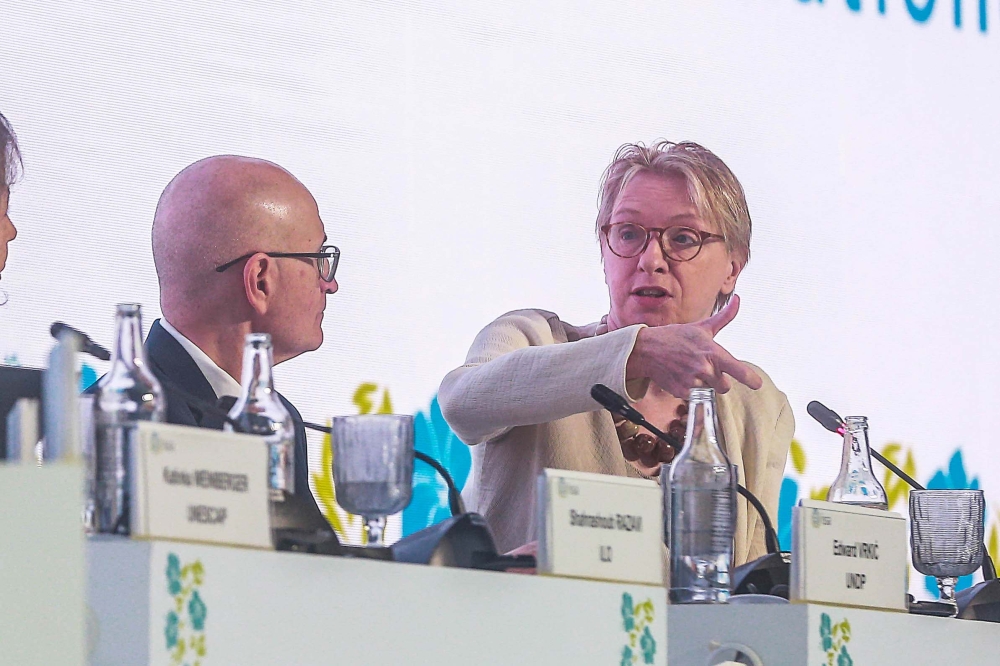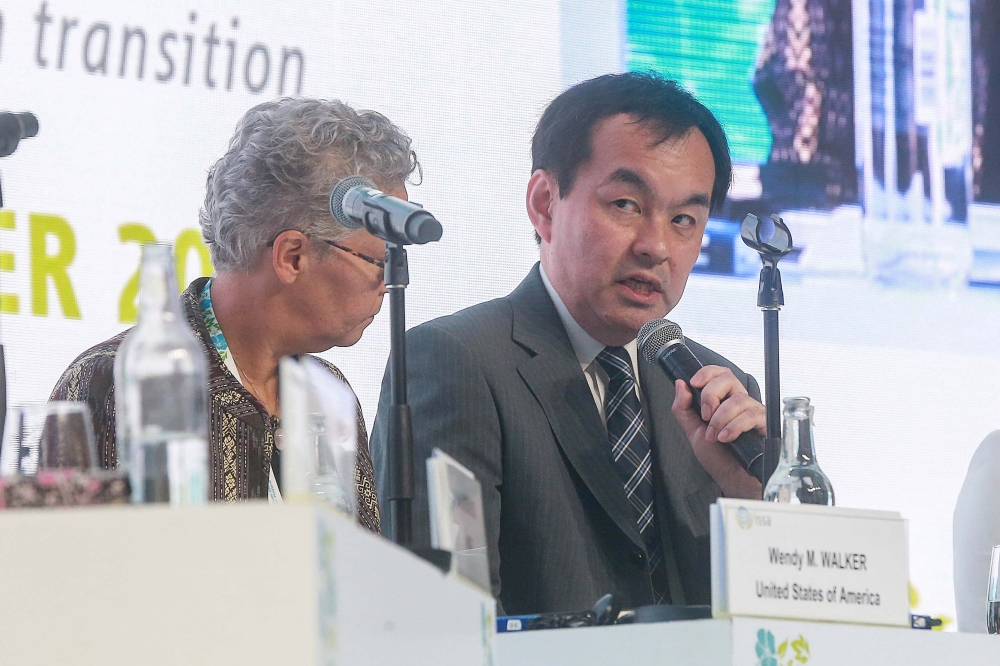KUALA LUMPUR, Oct 15 — Is there an ideal retirement age for Malaysians? Perhaps, should we rethink the idea of there even being an ‘ideal’ time to stop working?
In Malaysia, the minimum retirement age for the private sector’s employees is 60, but the government is studying a proposed increase of civil servants’ mandatory retirement age from 60 to 65.
United Nations Development Programme’s (UNDP) resident representative to Malaysia, Singapore and Brunei, Edward Vrkić, said it is up to Malaysians to decide what is the right age to retire.
He said Malaysia should lead the discussion on this, while UNDP could help by providing policy advice and expertise.
“Rather, for organisations like the United Nations Development Programme, our role is to really work with the government to find national solutions that suit Malaysia’s context,” he told Malay Mail recently on the sidelines of the recent World Social Security Forum (WSSF) 2025 here.
“So, our advice to the government is, consistently think what’s best for Malaysia and Malaysia’s interest. And that will require some discussion. It will require some policy interventions,” he said, adding that it would also involve working with the private sector, civil society and all types of communities to work out what suits Malaysia best.
Does retirement look or mean the same for everyone?
Vrkić said there is a need to revisit the idea of having a mandatory retirement age.
This is because populations are getting older throughout the world, and how retirement would be funded is also becoming an important question globally, he said.
“Because you want people to live in dignity. And to do that, you need to have money. And that’s the reality of being able to afford to pay a few bills and look after yourself,” he said.
He questioned the idea of retiring after working for 40 years without passing the knowledge on, or without remaining engaged, or not being productive when still able to do so.
“I think that’s a question that all countries need to think about, because retirement age is very arbitrary,” he said.
“And I would like to think, at a more human level, your life doesn’t stop when you retire. Things keep moving forward,” he said, stressing the importance of having a responsible and respectful discussion.
He said there is a need to redefine what retirement means, as retirement is not the same for everyone.
“Some people may choose to, want to, work well into their 70s and 80s. While some people are not capable of working in their 70s and 80s,” he said.
He said those in their 50s and 60s may not want to stop working and might want to do different jobs or work in a different way.
Why working longer is not just about earning money
“I think the danger we all run about talking specifically about the retirement age is that we miss a much more important discussion about human well-being, about productive capability, about living.
“People are living longer, and they’re living healthier longer. And that presents an extraordinary opportunity for passing on knowledge, skills, wisdom,” he said.
He said employment does not only have economic benefits but is also a great way to keep people socially engaged.
“Because we know from international experience that when people are engaged, you stave off diseases that you find as you get older; you keep people more mentally aware and keep them fitter. The social bonds keep you healthier.
“Your workplace is often a very important part of your social engagement with other people,” he said.
He also added: “The global experience tells us that where people are living longer and they’re more productive and more engaged and have more social connections, they live longer, happier lives.”
Among other things, he also commended the Malaysian government for recently passing the Gig Workers Bill and said it was a “step in the right direction”, praising it for leading the way in addressing inclusion and disabilities.

Fiona Elizabeth Stewart, the World Bank’s global lead for aging and pensions, said there is a need for more nuanced thinking about retirement age and what to do with retirement. – Picture by Sayuti ZainudinConvention Centre. — Picture by Sayuti Zainudin
Viewing living longer as an opportunity, not a burden
Fiona Elizabeth Stewart, the World Bank’s global lead for aging and pensions, said “just increasing the retirement age is a very blunt tool” which can be “unpopular”.
She said the discussion about retirement has increasingly become more nuanced, pointing out that there are those in their 50s or 60s who have stopped working earlier, though not always by choice.
Noting that there are now 1.5 billion people globally in their 50s and 60s who are living more healthily, she said: “That is a huge opportunity, we need to stop thinking of this as a burden and think of it as an opportunity”.
For example, she said it is quite hard for those aged above 50 to get a loan in many countries, but that Latin America’s banks have “silver bonds” which then enables loans to be given out to entrepreneurs over age 50 to set up their own businesses.
“We need to think about some people increasing working for longer, some people need to be trained, and some people should not be working as long as they’re working,” she said.
When it comes to healthy life expectancy—or the average number of years a person is expected to live in good health or without disability, Stewart said 50 per cent of people in low-income countries still work beyond this age, as compared to 10 per cent in high-income countries.
“We’re going to live longer. We need to change the attitudes for ageing. We need to think this is a blessing. We need to think this is an opportunity, and not a burden,” she later concluded while speaking in the same WSSF panel as Vrkić.

Yasunori Wada, Japan Pension Service’s executive director for operation planning, said public pension benefits account for more than 60 per cent of total household income for older people. — Picture by Sayuti Zainudin
Japan: Pension reforms as older people continue working
Japan Pension Service’s executive director for operation planning, Yasunori Wada, noted that Japan has the highest ratio globally of older persons to younger persons, with almost 30 per cent of the population aged 65 and older, while less than 60 per cent are aged 15 to 64.
Life expectancy at age 65 for women in Japan is an additional 25 years, and an additional 20 years for men, he said.
He said that older people have more diverse lifestyle and health conditions as compared to younger people, and that older people in Japan are increasingly opting to work.
“52 per cent of seniors aged 65 to 69, and 34 per cent of those aged 70 to 74 are working.
So, it’s crucial to develop a society where older people can choose to work longer,” he said in a separate WSSF session titled “Demographic transitions and social security over the life course”.
He said there have been two major pension reforms in Japan in recent years, including the extension of the employees’ pension insurance to also cover part-timers, which resulted in more persons including older people being insured.
The second reform, implemented since 2022, was to raise the maximum age where you can choose to delay claiming your “old-age pension benefits”.
Those in Japan can start receiving pension from age 65 but may choose to delay getting the pensions at any age up to 70 in exchange for a higher benefit amount. [[[ Please hyperlink to ‘ can choose to delay getting the pensions at any age up to 70′: https://www.nenkin.go.jp/international/japanese-system/nationalpension/nationalpension.html ]]]]
Since more older people continue to work, Japan increased the maximum age where you can choose to delay getting pensions to age 75.

Swedish Pension Agency director general Anna Pettersson Westerberg is seen here with the ‘orange envelope’ sent out to Swedes annually with information on their pension savings and forecast of their future pension, although 75 per cent are now sent digitally. — Picture by Sayuti Zainudin
Sweden’s ‘nudge’ to retire later
Also at WSSF, Swedish Pension Agency director general Anna Pettersson Westerberg said the increased retirement age in the pension system — or the age when pensions can be accessed — has created a “strong incentive to work longer”.
She said her agency had found that the increased retirement age has an effect on retirement behaviour, with even those who are indirectly affected also following the “nudge” or recommendation to work longer and retire later.
The retirement age in Sweden’s pension system was raised from age 65 to 66 in 2023, and will be increased to 67 next year.
What’s next in Malaysia
In Malaysia, a tax deduction has been given to employers who hire senior citizens aged 60 and above since the year of assessment 2019, provided that it is for full-time employment with maximum monthly RM4,000 pay and with no family ties between employer and employee.
In Budget 2026, the government proposed to continue giving this tax deduction for the next five years (for assessment year 2026 to 2030) “to ensure that senior citizens remain active, achieve financial independence as well as continue contributing to the nation’s economic development”.





